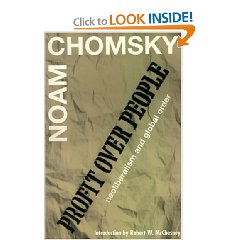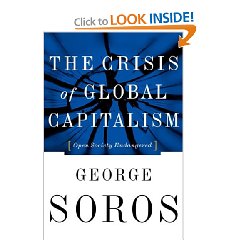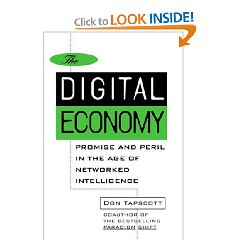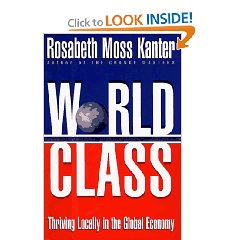This book begins with a very fine introduction by Robert McChesney, who defines neoliberalism as an economic paradigm that leaves a small number of private parties in control and able to maximize their profit (at the expense of the people). He goes on to note that a distracted or apathetic or depoliticized public essentially “goes along” with this, resulting in the loss of community and the rise of consumerism.
Chomsky himself, over the course of 167 pages, points out the damages of neo-liberalism (public abdicating power to corporations), not just to underdeveloped nations and their peoples, but to the American people themselves, who are suffering, today, from a fifteen year decline in education, health, and increased inequality between the richest and the poorest.
Over the course of several chapters, he discusses various U.S. policies, including the U.S. policy of using “security” as a pretext for subsidizing the transfer of taxpayer funds to major arms dealers. The declaration of Cuba as a threat to U.S. national security is one that Mexico could not support–as one of their diplomats explained at the time: “if we publicly declare that Cuba is a threat to our security, forty million Mexicans will die laughing.”
At the end of it all, Chomsky comes down to the simple matter of protecting both civilization and the civilians from their own governments in cahoots with corporations. His observations on the deaths by disease, starvation, and so on, at the same time that billions are being spent on arms which perpetuate the cycles of violence, are relevant. So also are his observations on the dramatic increase in both the extent and the damages caused by increasingly unregulated financial markets. He singles out the Multilateral Agreement on Investment (MAI) as an especially pernicious organization whose machinations are invisible to the public and harmful as well.
I note with interest a review of this book that seeks to call Chomsky a liar, uninformed, and a laughingstock among “serious” scholars. I wish to address that point of view kindly. I can understand, when scholarship consists largely of going through the motions, reading a limited number of works, and answering by rote with the prescribed thought, how so many of our allegedly educated people in business and government are simply socially tuned in. I have myself come to the conclusion that Washington runs on 2% of the available international information (and is largely witless about the 75% or so that is in foreign languages), and I also agree with Howard Bloom's observation in Global Brain: The Evolution of Mass Mind from the Big Bang to the 21st Century, to wit, that half one's brain cells are killed off by the time one is an adult, due to normal biological adjustments to accommodate the prescribed social, cultural, and intellectual parameters that are demanded if one is to “get along.” In that light, I view Chomsky as one of our more important vaccinations against premature stupidity among our loosely-educated adult policymakers. For myself, with considerable reading and a 25-year national security career behind me, I find that while Chomsky is repetitious, he is generally meticulous about foot-noting (something that cannot be said for the lazy authors residing in most think tanks, all of them being paid to think along very specifically prescribed directions).
The bottom line for me is clear: citizens must read and think, or perish from the earth as slaves to those who control money. There is only one thing that matters more than money in this world, and that is the vote. In a representative democracy, the vote can be bought with ease *until* the moment comes when citizens realize that they can combine the use of public sources to reach conclusions (open source intelligence) with self-organization via the Internet, with civil action (cyber-advocacy, street-advocacy, communication and voting) to *take back the power.* It is not terrorism that scares the corporate carpetbaggers, it is something much more powerful: thinking citizens willing to spend the time keeping their corporate servants in line.
Chomsky has labored for over fifty years to keep that part of our brain alive that our schools, seeking to train obedient factory workers, have worked so hard to kill. It can be disheartening, to see citizens so freely give up their rights and their powers, but I do believe, that with the The Radical Center: The Future of American Politics (Halstead and Lind), The Cultural Creatives: How 50 Million People Are Changing the World (Rya and Anderson) and other books I have reviewed, there is, without question, a tipping point. The Internet has changed everything-now we need for the people to notice, and act. Chomsky sheds light in a way that no prostituted scholar or preppy business acolyte will respect-but if the workers wish to begin reading for the future salvation of their children's rights, Chomsky is as good a place as any from which to step off into true democracy.
See also:
The Manufacture Of Evil: Ethics, Evolution, and the Industrial System
The Shock Doctrine: The Rise of Disaster Capitalism
Screwed: The Undeclared War Against the Middle Class – And What We Can Do about It (BK Currents (Paperback))
The Working Poor: Invisible in America
The Global Class War: How America's Bipartisan Elite Lost Our Future – and What It Will Take to Win It Back
The Corporation: The Pathological Pursuit of Profit and Power
The People's Business: Controlling Corporations and Restoring Democracy










